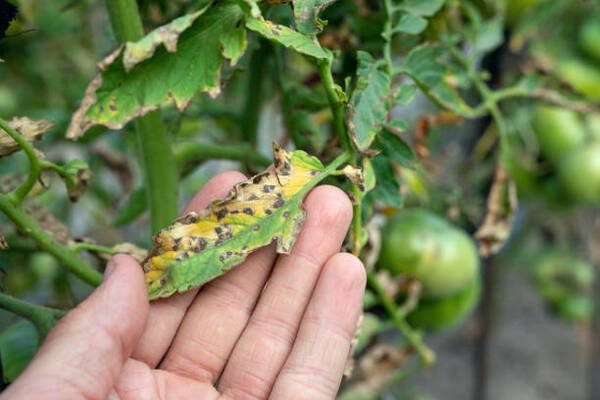Notifications
ALL BUSINESS
COMIDA
DIRECTORIES
ENTERTAINMENT
FINER THINGS
HEALTH
MARKETPLACE
MEMBER's ONLY
MONEY MATTER$
MOTIVATIONAL
NEWS & WEATHER
TECHNOLOGIA
TV NETWORKS
VIDEOS
VOTE USA 2026/2028
INVESTOR RELATIONS
COMING 2026 / 2027
ALL BUSINESS
COMIDA
DIRECTORIES
ENTERTAINMENT
FINER THINGS
HEALTH
MARKETPLACE
MEMBER's ONLY
MONEY MATTER$
MOTIVATIONAL
NEWS & WEATHER
TECHNOLOGIA
TV NETWORKS
VIDEOS
VOTE USA 2026/2028
INVESTOR RELATIONS
COMING 2026 / 2027
 dimess patel -
December 5, 2024 -
Personal -
agriculture
organic farming
farming
Plant Growth Regulator
crop
paclobutrazol
pellot
paclobutrazol 23% sc
Vegetable Crops
-
453 views -
0 Comments -
0 Likes -
0 Reviews
dimess patel -
December 5, 2024 -
Personal -
agriculture
organic farming
farming
Plant Growth Regulator
crop
paclobutrazol
pellot
paclobutrazol 23% sc
Vegetable Crops
-
453 views -
0 Comments -
0 Likes -
0 Reviews

Balancing productivity, resource efficiency, and sustainability in modern agriculture is a constant challenge. Among the tools that help farmers optimize their yields, Plant Growth Regulators (PGRs) play a significant role. Of the many options available, Paclobutrazol 23% SC stands out as a game-changer. This growth regulator offers unique benefits that address the needs of both conventional and organic farming, making it indispensable for various crops, especially vegetable crops.
Paclobutrazol, 23% SC, is a systemic Plant Growth Regulator that inhibits gibberellin biosynthesis in plants. Suppressing gibberellins controls excessive vegetative growth, encourages root development, and enhances stress tolerance. The "SC" refers to "suspension concentrate," a formulation that ensures better absorption and extended efficacy.
This PGR is particularly effective for vegetable crops, fruit trees, and even ornamental plants, offering farmers a versatile solution for improved crop management. Its ability to deliver consistent results under diverse farming conditions has made it a preferred choice worldwide.
The mechanism of paclobutrazol revolves around hormonal regulation. Reducing gibberellin levels redirects the plant's energy toward productive outcomes such as stronger roots, better fruiting, and enhanced resilience. This improves the plant's overall health and helps manage limited resources like water and nutrients more efficiently.
Paclobutrazol's efficiency in optimizing plant metabolism makes it invaluable for farmers managing crops in water-stressed or nutrient-deficient areas.
A robust root system is essential for sustainable farming, and paclobutrazol promotes deeper and healthier roots. This leads to improved nutrient absorption and water uptake, reducing the dependency on frequent irrigation or fertilization.
Excessive vegetative growth can waste resources and reduce yield potential. Paclobutrazol 23% SC limits unnecessary elongation, encouraging a compact plant structure that supports better resource allocation.
For instance, Pellot - Paclobutrazol 23% SC, a trusted formulation, is widely used by farmers to control overgrowth in high-density vegetable farming. This allows better light penetration and air circulation, reducing the risk of diseases while boosting productivity.
One of the most critical aspects of modern farming is managing abiotic stress, including drought, salinity, and extreme temperatures. Paclobutrazol enhances the plant's ability to tolerate these challenges by increasing antioxidant activity and reducing water loss through transpiration.
Statistics show that crops treated with paclobutrazol can exhibit up to 30% greater resilience under water-limited conditions, providing a safety net for farmers in regions with erratic rainfall patterns.
"The strength of a farm lies not just in its yield but in the resilience of its crops to thrive against challenges. A strong foundation builds a sustainable future."
The use of paclobutrazol significantly benefits vegetable crops such as tomatoes, eggplants, and peppers. Its ability to regulate plant height and improve flowering ensures higher yields and better-quality produce.
Paclobutrazol is commonly used in fruit trees like mangoes and apples to induce flowering and manage off-season production. It helps synchronize flowering and improves the fruit set, contributing to higher market value.
For ornamental crops, paclobutrazol ensures compact and aesthetically pleasing growth. This is particularly useful in controlled environments like nurseries, where plant uniformity is crucial.
Sustainability is at the heart of modern farming, and paclobutrazol contributes to it in multiple ways:
While paclobutrazol is synthetic, its strategic use aligns with the principles of organic farming by reducing external inputs and promoting natural resilience in plants.
The effectiveness of paclobutrazol depends on precise application. Farmers should adhere to recommended dosages based on crop type and growth stage. Overuse can suppress growth excessively, so careful monitoring is essential.
Applying paclobutrazol early in the vegetative stage ensures optimal outcomes. For fruit crops, pre-flowering applications can enhance both quantity and quality.
Paclobutrazol is compatible with most fertilizers and pesticides, making it easy to integrate into farming routines. However, farmers should avoid mixing it with highly alkaline solutions.
The combination of its unique formulation, broad applicability, and proven results makes paclobutrazol 23% SC a standout growth regulator. Unlike generic PGRs, it offers targeted benefits without overburdening resources or the environment.
Farmers using paclobutrazol report up to a 25% improvement in yields for high-value crops and better market prices due to enhanced quality. Its role in promoting resilience and sustainability makes it a cornerstone of future-ready farming practices.
Paclobutrazol 23% SC is not just a tool for boosting productivity but a strategic ally in the transition toward resilient, sustainable, and profitable agriculture. Its versatility across crops and farming systems ensures that it will continue to play a vital role in shaping the future of farming.
